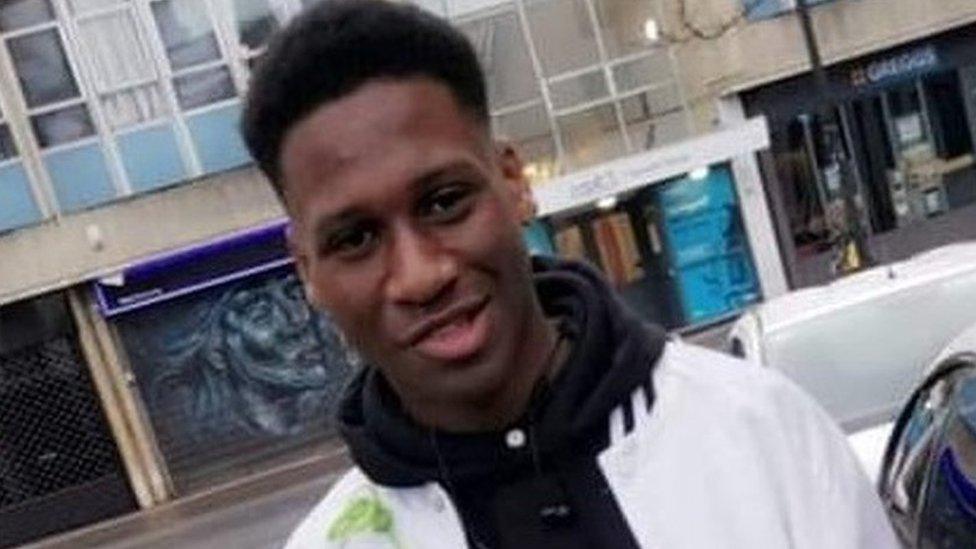Knife crime: Avon and Somerset police slow rise in parts of West
- Published
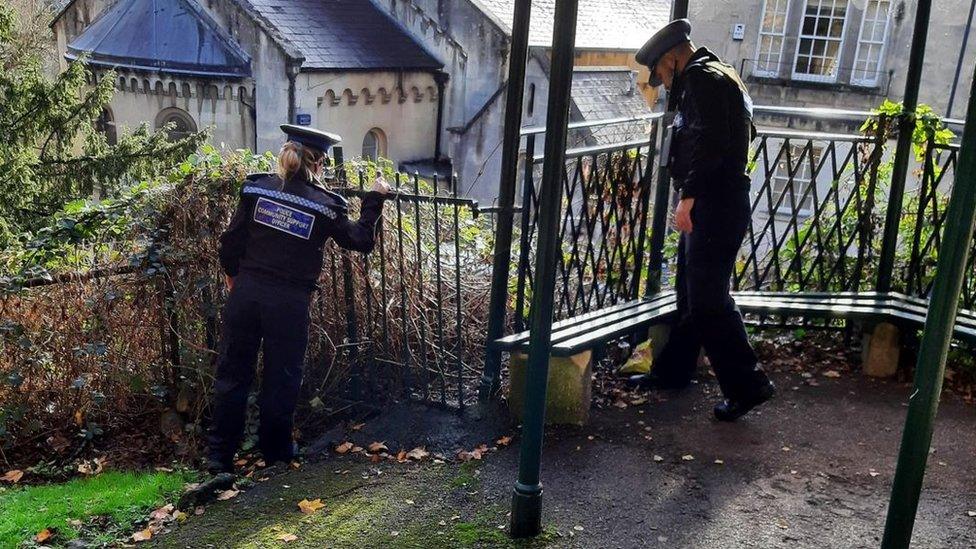
Officers from Avon and Somerset Police carry out a knife sweep
The rise in knife crime across parts of the West has finally slowed, after campaigns to target knife-related offences. But the senior officer tasked with taking weapons off the streets says there is still more to do, and educating young people is a key part.
"From my point of view, and from the frontline teams and the statistics that we're seeing at the moment, at the end of 2022 we are in a lot, lot better place than we were four years ago," said Temporary Chief Inspector Mike Vass of Avon and Somerset Police.
In 2018, he said, things were "really bad" and knife-related offences were growing at an "exponential rate" in the Avon and Somerset Police area but also across the country - particularly in London.
That increase in Avon and Somerset has slowed dramatically, from 53% in 2018 to just 4.9% over the past year - which resulted in an increase of 55 offences.
"Any form of increase is bad. I want to see a decrease, year on year. That's the ultimate objective," said Ch Insp Vass.
Dangers of carrying a weapon
Education, he says, is key. Knife crime can affect all age groups, but it is the 12 to 24 age group that is the group most likely to carry a knife, and also fall victim to violence involving one.
"I've got two young children and I worry, as other parents do, about what you see on the news," Ch Insp Vass said.
A key part of the force's approach is telling young people - often thousands of them in one campaign - about the real dangers of bringing knives into a dispute, or carrying one routinely.
Dontae Davis was said to have been the victim of a "chance encounter" when he saw a member of a rival gang on the streets of Bristol and they were both armed. He died from his wounds.
Harley Demmon stabbed Joshua Hall, 17, to death in Dursley, Gloucestershire, when the pair met up to "sort out their differences".
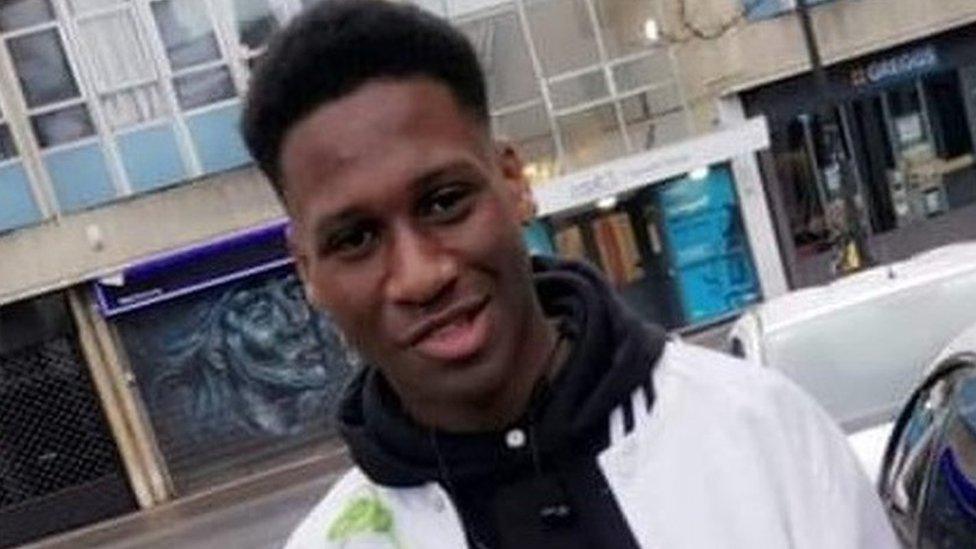
Dontae Davis died after being attacked in Lawrence Hill in Bristol
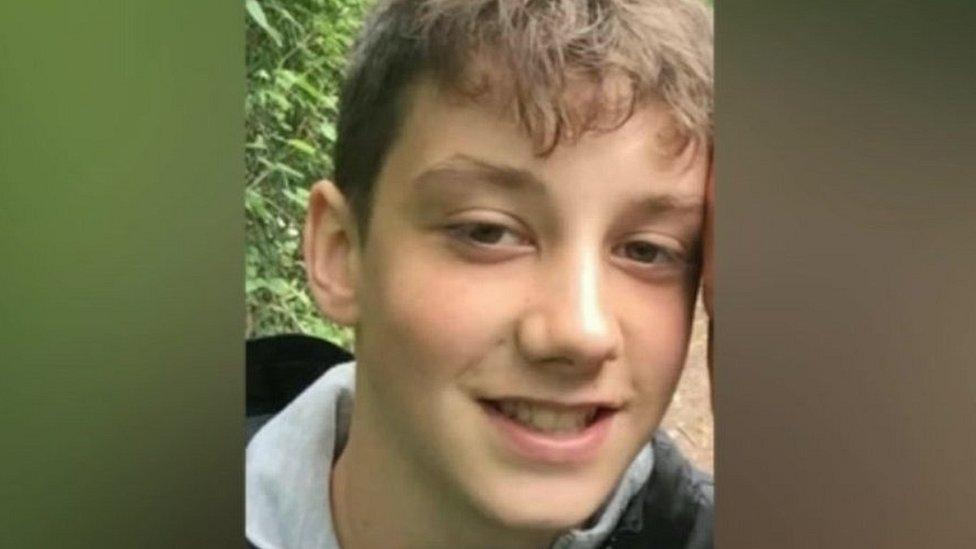
Joshua Hall suffered several stab and slash wounds
"If you've got a weapon readily available, and you get into that heated moment where you're not thinking rationally, then the risk is there," said Ch Insp Vass.
"Every single household will have some sort of knife available.
"If you put that into the waistband, the sock, the sleeve of someone on the street - even if someone didn't mean to be the aggressor - they can end up using it.
"There's a growing trend, and it's difficult to monitor it whether you're a police service or an education authority, of confrontations starting on social media platforms or in music videos.
"And if it's in a community setting, and someone thinks they've been disrespected or upset, then you do see the result is a confrontation involving a bladed weapon."
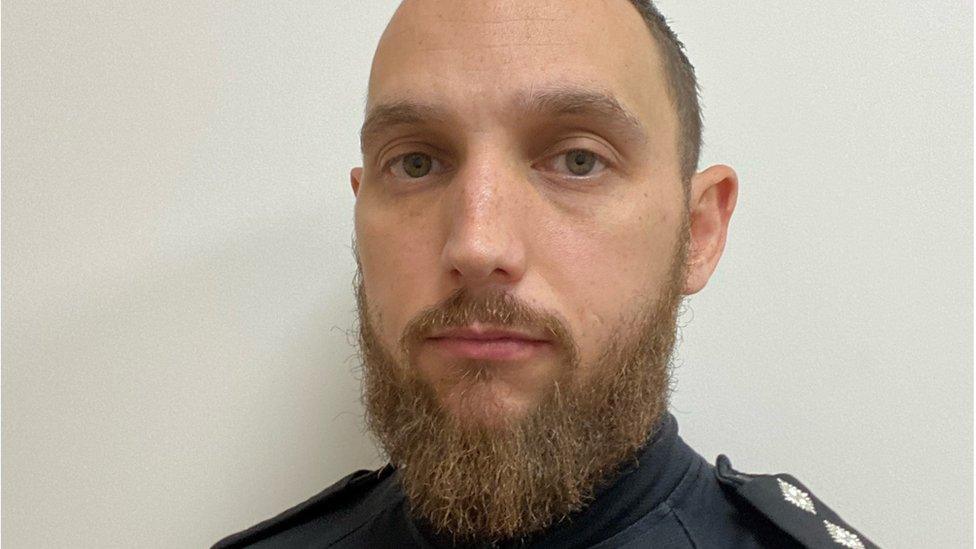
'You can damage an artery easily,' said Temporary Chief Inspector Mike Vass
What is particularly dangerous for Ch Insp Vass and his teams, is people thinking they can stab someone as a warning - setting out to inflict a non-fatal wound.
"They're not surgeons, it's not an exact science," he said.
"Your legs, around your midriff, those areas are full of arteries and really sensitive points and we see them targeted, by people who don't realise how dangerous that is."
Officers partner with education authorities if there are individuals or even whole classes or year groups at risk of being drawn into using weapons.
Blunt Truth workshops, using NHS staff, give young people a chance to see the outcomes for themselves or someone they know when knives are used.
They are also taught practical first-aid skills to help them deal with wounds.
Twice a year, Avon and Somerset Police run Operation Sceptre, a targeted short-term campaign to reduce knife crime, involving measures such as weapons sweeps of public spaces and increased patrols.
Officers also target retailers, sending out undercover teams to see if age restrictions are being observed, and also look into the import of weapons that, Ch Insp Vass says, have "no place in day-to-day life in the United Kingdom".
"We don't have a need for zombie knives, we don't have a need for swords that have the ability to decapitate people."
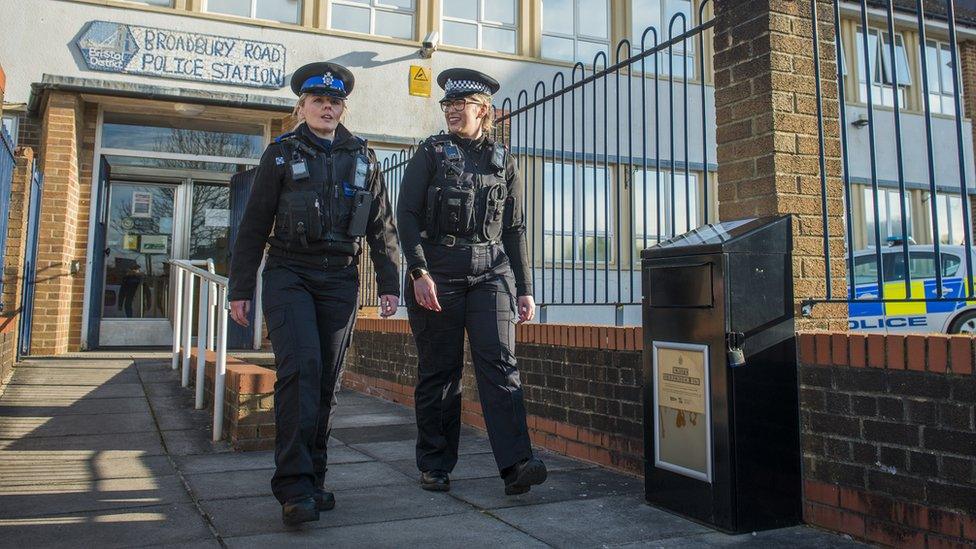
Knife bins are now outside places like Broadbury Road Police Station
In May this year, a huge one-day operation saw 120 shops and larger stores subject to test purchases, and since then police officers going back to those who failed to keep the rules, to make sure they are now compliant.
Some shops have changed how they sell knives, putting them in areas covered by CCTV, with warnings about law-breaking alongside them.
"Ultimately that's going to prevent a vast amount of unnecessary knives getting into the wrong hands."
In 2016 Avon and Somerset Police began using surrender bins, places where knives could be given to the police.
They were few in number, and when the police unlocked them and counted the number of weapons handed in, there were 60. Now, after expanding the network of bins, the force has just past the 4,000 mark.
New 'community bins' are about to be rolled out across the Avon and Somerset force area, funded by the police and crime commissioner's office.
"These are going to be armoured units that will be fitted into streets, and they will be requested by communities - we won't dictate where we put them," said Ch Insp Vass.
Tackling violence 'hotspots'
Surrender bins are a year-round tactic, but much of what is done to fight knife crime in the Avon and Somerset Police area is targeted, including tackling what Ch Insp Vass calls "hotspots" for serious violence.
"It sounds really basic, but it's really, really effective. New York did it back in the 1990s and we now employ what in this country is known as 'bobbies on the beat'.
"We've highlighted a number of areas across the constabulary that can see serious violence, and use highly-visual foot patrols on a regular basis using body-worn cameras.
"Straight away, you see the risks come right down because of that physical presence of police officers."
Being able to maintain that presence is a challenge, says Ch Insp Vass.
"Society has changed and there are competing demands on what police officers do," he said.
"They are often mainly not dealing with crime, but dealing with concerns for people's welfare, and missing persons cases and mental ill health."
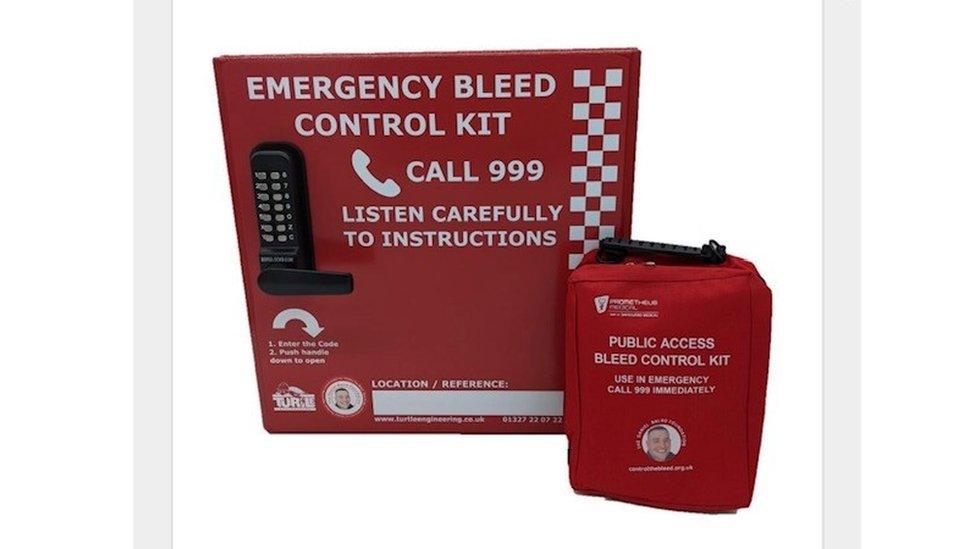
Emergency bleed kits are being rolled out across the West
Emergency bleed kits are being installed, external in the same public boxes where defibrillators are found. If someone calls 999 they can be given the code which unlocks the kit.
Ch Insp Vass plans to have these kits installed in all defibrillator cabinets in the Avon and Somerset area by the spring.
Celebrities step in
Help has come from unexpected sources, as Ch Insp Vass and his counterparts at other UK police forces try and turn the tide.
"Nationally there has been a few celebrities that have shown high interest [in knife crime] for whatever reason, sometimes when their families have been affected," he said.
"Tyson Fury spoke out recently, and Idris Elba has been involved for a number of years.
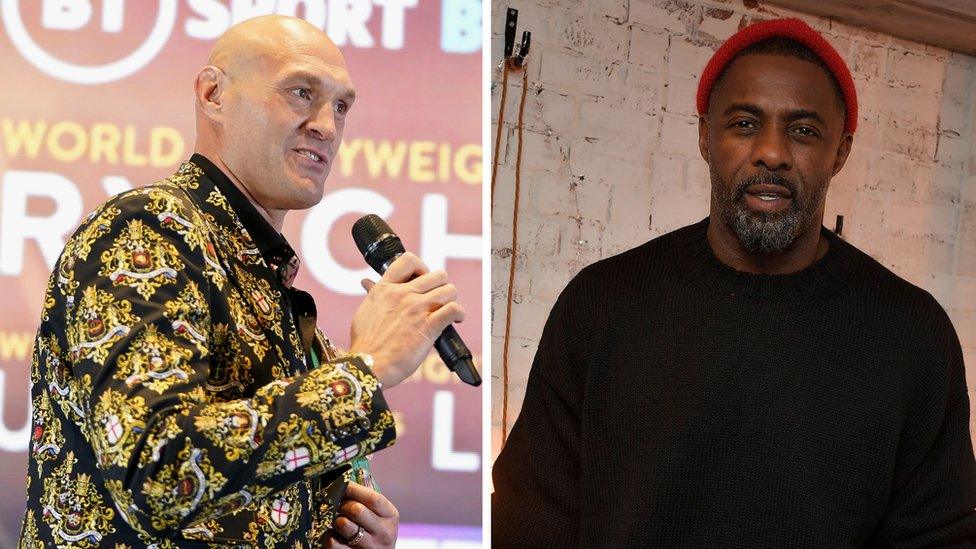
Celebrities such as Tyson Fury and Idris Elba have spoken out after being personally affected by knife crime
"They've been very vocal around knife crime which is fantastic.
"I think society is changing its attitude slowly, which is good."
For Ch Insp Vass, the hardest thing a police officer can do is knock on someone's door to tell them a loved one has been killed.
"I've been with Avon and Somerset for 18 years and I can say without a doubt, delivering the news to someone that they've lost somebody close to them is the most awful thing we have to do.
"We're all humans aren't we? And for me that's one of the reasons why I'm really passionate about the work I do for my organisation around knife crime.
"I want my children and other people's children to have a safe, happy environment to grow up and live in."

A view from the streets
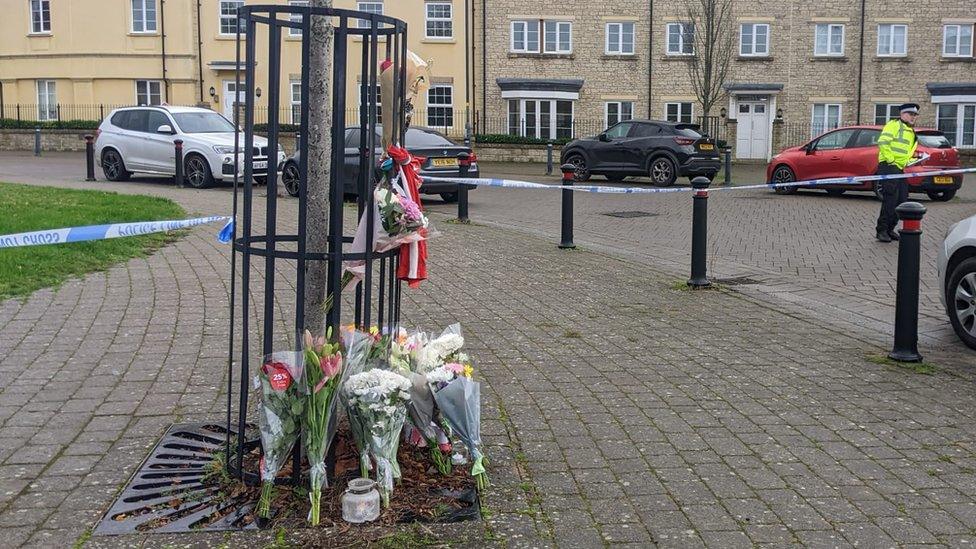
An 18-year-old man died in a stabbing in the Toothill area of Swindon on 4 December
Aaron Webb, 34, is a youth and community worker with Central Swindon North Parish Council, which has about 33,000 urban homes in its patch.
He was brought in after a rise in anti-social behaviour in that part of the town, along with other issues caused by deprivation.
In the four years he has been in post he has introduced free breakfast clubs and other initiatives in an area - containing estates such as Penhill and Pinehurst - which is not just one of the most deprived in the UK but in Europe.
"We take kids on trips - we took some to London for the day, to wildlife parks, and it was the first time some of them had been on a motorway at age 14 or 15," he said.
Mr Webb and others run youth clubs, detached youth work speaking to young people on street corners, and held an anti-knife-crime rally just before the Covid-19 pandemic.
The main reason young people give to him for carrying a knife is for "protection".
"I also think the role models that people look up to carry these weapons and think it's cool now to carry one," said Mr Webb.
"A lot of people are unaware of what goes on with children and young people, a lot of people are still wrapped up in cotton wool, they don't realise young people carry these weapons and they don't think it [violence] will happen to them or someone they know."
If he had far more money at his disposal, Mr Webb said he would have more youth services on offer, and more intervention in education.
"I'd like young people to have safe places to go every night of the week," he said.
"You're never going to stop it [knife crime] but if you can stop more people carrying weapons then that would be a step in the right direction."

Follow BBC West on Facebook, external, Twitter, external and Instagram, external. Send your story ideas to: bristol@bbc.co.uk
Related topics
- Published5 December 2022
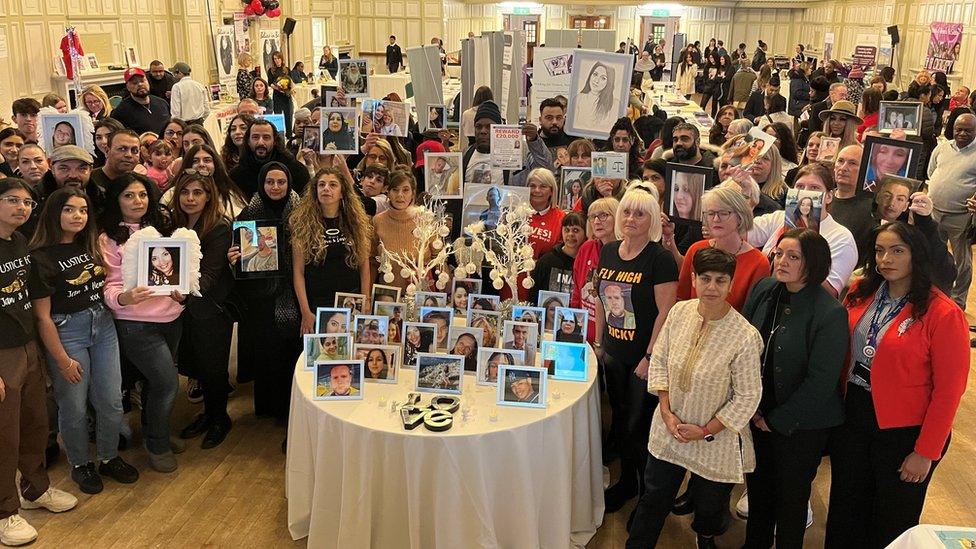
- Published17 April 2022
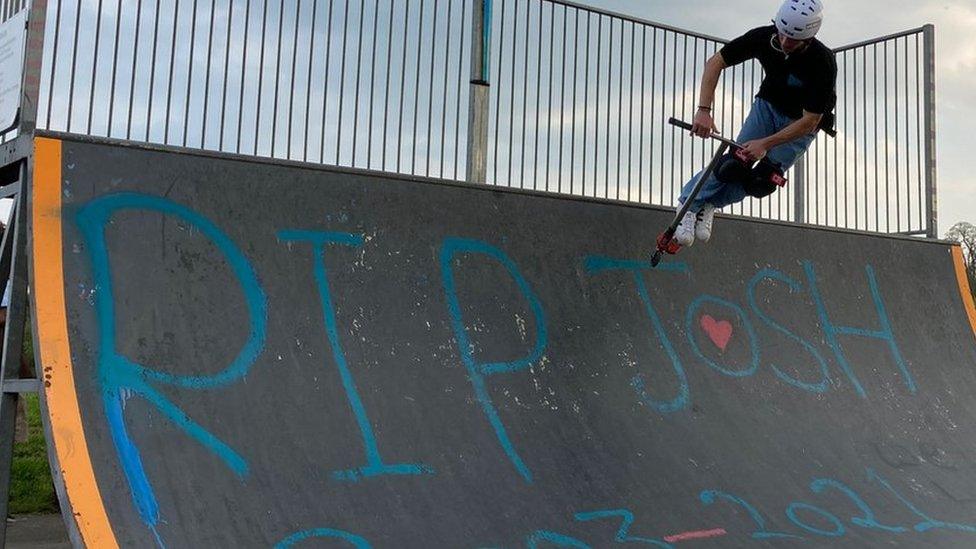
- Published6 January 2022
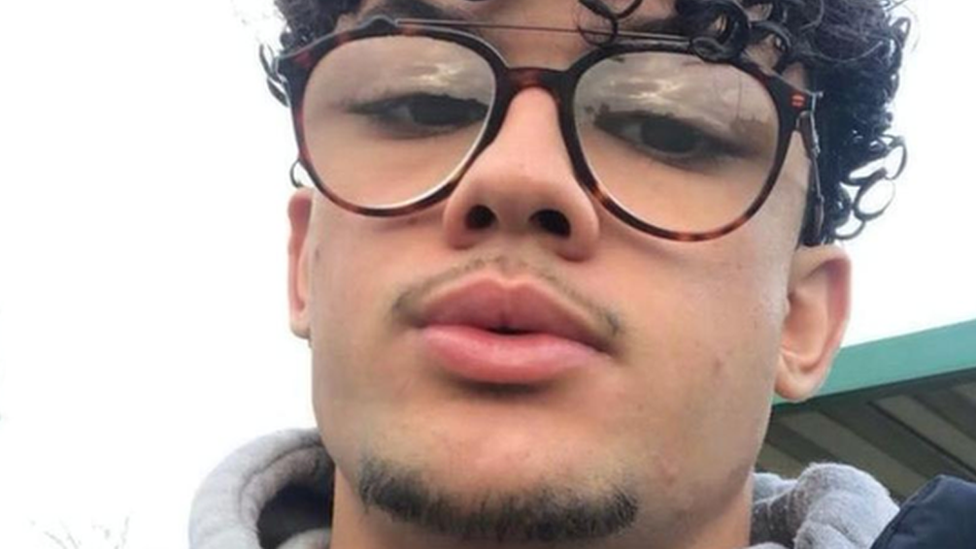
- Published21 October 2021
